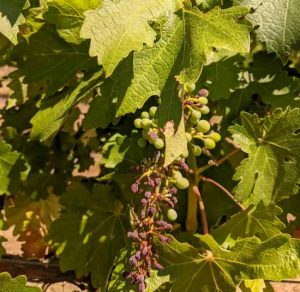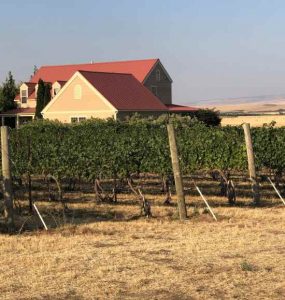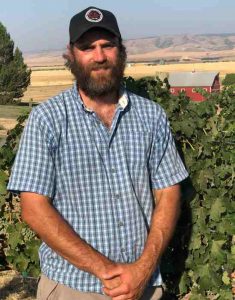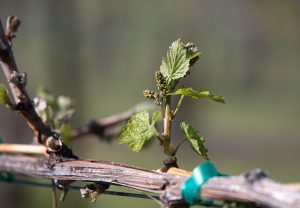Latest News, Vines and Vineyards, Walla Walla AVA, Walla Walla Winery
by Jay DeWitt, Managing Partner and Vigneron

The 2021 vintage will produce excellent wines from Walla Walla valley vineyards, but there won’t be much.
The extreme and persistent heat during June was something we have not dealt with in previous vintages. The heat arrived near the end of our bloom period, just as the delicate berries were forming and beginning to expand. Any of the grapes that were not protected by the shade from a leaf simply burned up in the afternoon sun, as if they had been hit by a blow torch. The berries that were left did not expand to their full potential. If the heat had come later in the year, we would have been able to manage our way through it with minimal damage. But the end result was a 35% yield reduction. Each variety fared a little different, dependent upon which growth stage the plants were in when the heat hit. Cabernet Sauvignon, which blooms later than the other varieties, was impacted the most, the Birck Creek Cab Sauv was reduced by half.
Heat and drought often come together, as they did in June 2021. Our grapes were not affected by lack of water, in fact we used our irrigation system to help reduce the damage caused by the heat. Even though they had plenty of soil moisture, the plants couldn’t take up enough water to keep the developing fruit fully hydrated in the afternoon sun.
The good news for our wine drinking friends is the remaining berries were outstanding. These battle tested survivors were small, thick-skinned, and fully ripe with concentrated flavors. We are nearly finished with pressing the wines, which are packed with aromatics, color, and flavor.
Anytime a crop is damaged by an extreme weather condition farmers ask themselves if there is anything that can be done to reduce the impact if the same situation is encountered in the future. In this case the answer is yes. Pruning practices could be adjusted to provide more clusters and more shade for the clusters as the grapes are developing. Early leaf expansion and thus more shade could be encouraged by adding a little fertilizer. Overhead misting systems that provide evaporative cooling during extreme heat could be installed. These preventative steps would add cost and contemplicate quality management. Over the winter we will consider this and weigh the cost of any adjustments against what we judge is the future risk. Farmers jokingly refer to this process as “managing the year that’s gone.” 🙂



